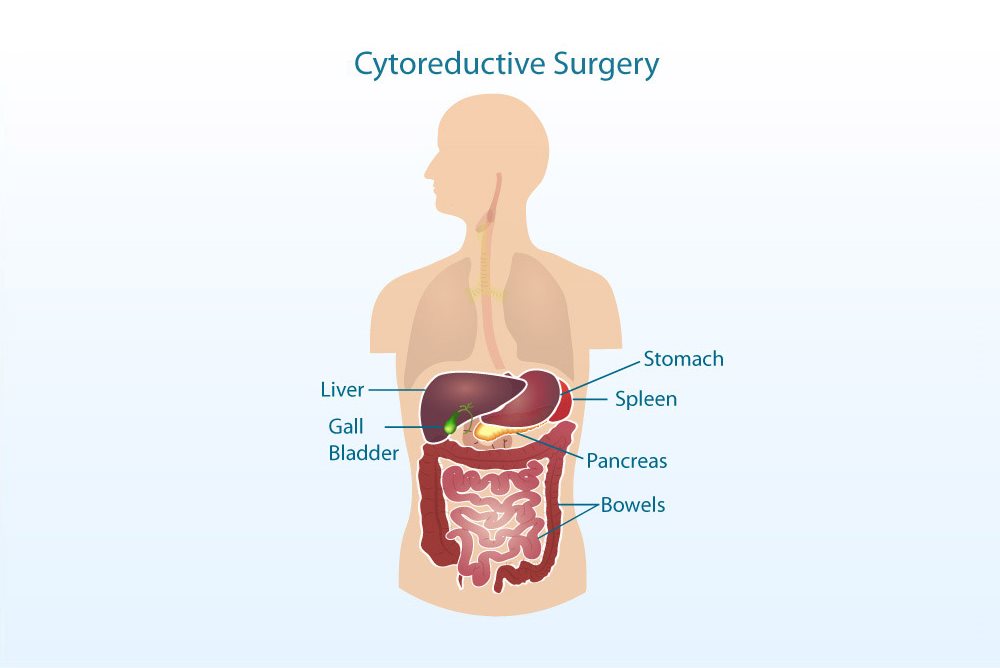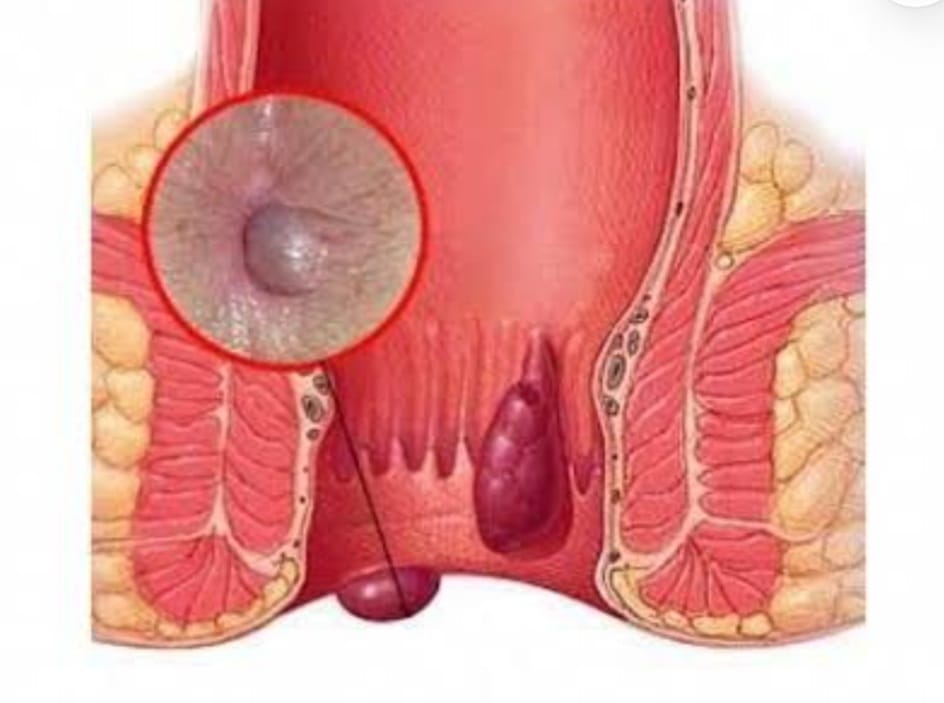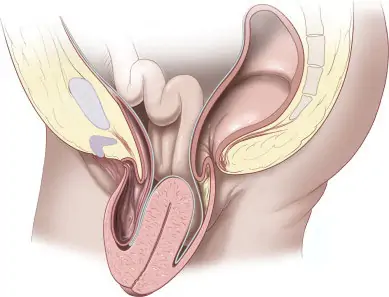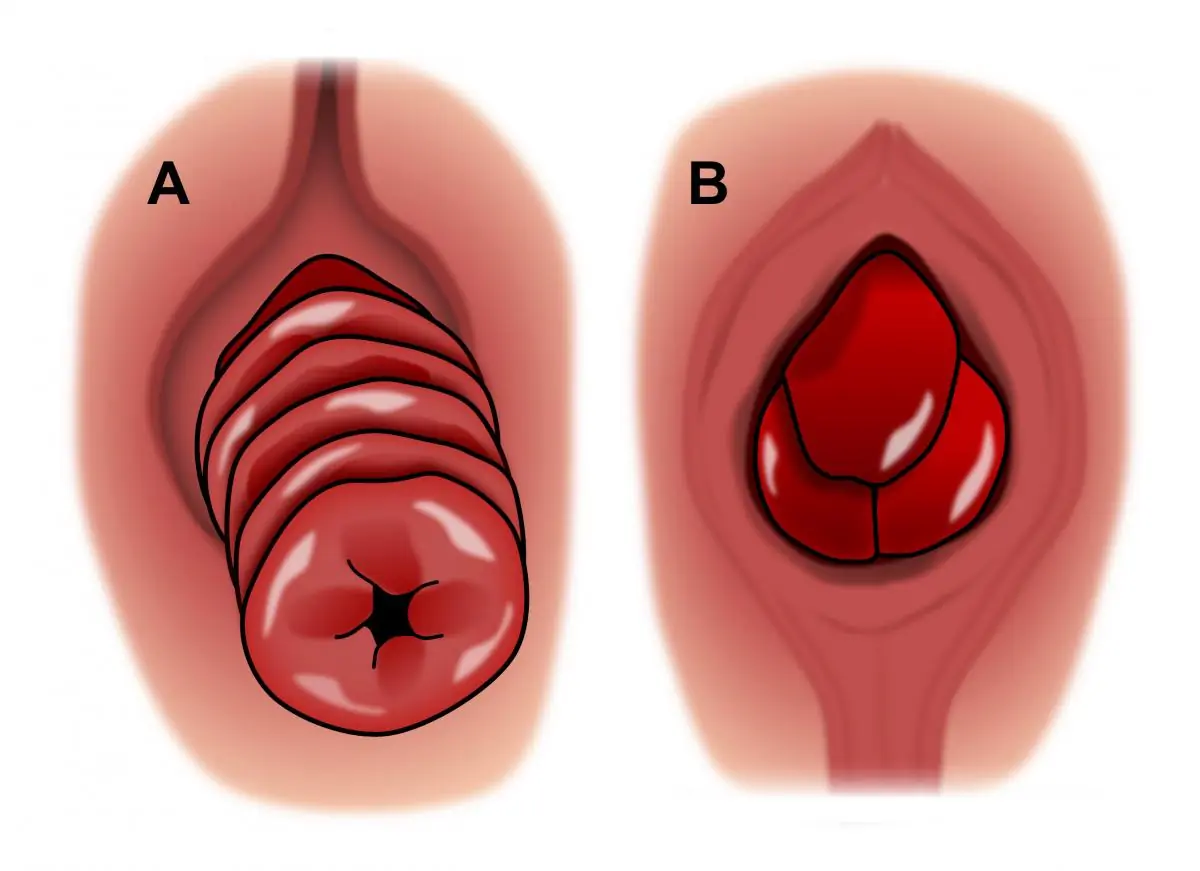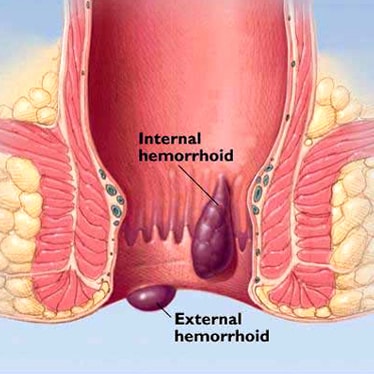Cytoreductive surgery (CRS), also known as debulking surgery, is a surgical procedure used in the treatment of certain advanced cancers, particularly cancers that have spread within the abdominal cavity. The primary goal of cytoreductive surgery is to remove as much visible tumor or cancerous tissue as possible from the abdominal area. This procedure is often used in combination with other treatments, such as chemotherapy or hyperthermic intraperitoneal chemotherapy (HIPEC), to improve treatment outcomes.
Here’s how cytoreductive surgery works:
- Assessment: Before the surgery, the surgeon evaluates the extent of cancer spread within the abdominal cavity. Imaging studies like CT scans or MRIs are typically used to identify and measure tumors.
- Surgery: During the procedure, the surgeon makes an incision in the abdomen to access the cancerous areas. They then carefully remove visible tumors or cancer nodules from the peritoneal lining and the affected abdominal organs.
- Resection: Depending on the location and extent of cancer, the surgeon may remove part or all of affected organs (e.g., portions of the colon, stomach, or other abdominal structures) if necessary to achieve optimal tumor removal.
- HIPEC: In some cases, after tumor removal, the surgeon may administer heated intraperitoneal chemotherapy (HIPEC) directly into the abdominal cavity. This is done to target any remaining cancer cells that may not be visible and to destroy them.
- Closure: Once the surgery and any additional treatments are completed, the surgeon closes the incision, and the patient is taken to the recovery room.
Cytoreductive surgery is commonly used in the treatment of advanced ovarian cancer, abdominal mesothelioma, and certain cases of colorectal and gastric cancers that have spread to the peritoneum (lining of the abdomen). The goal of CRS is to reduce the tumor burden within the abdomen, alleviate symptoms, and potentially improve the effectiveness of subsequent treatments like chemotherapy.
Cytoreductive surgery is a complex procedure that requires a skilled surgical team experienced in treating abdominal cancers. Patients are carefully selected for this procedure based on their individual cancer type, stage, overall health, and the potential benefits of surgery. It is typically performed in specialized medical centers by surgeons who have expertise in the management of peritoneal surface malignancies.
If you or a loved one has been diagnosed stomach cancer disease, consult Dr. Chintamani Godbole one of the best Gastroenterologist in Mumbai.
